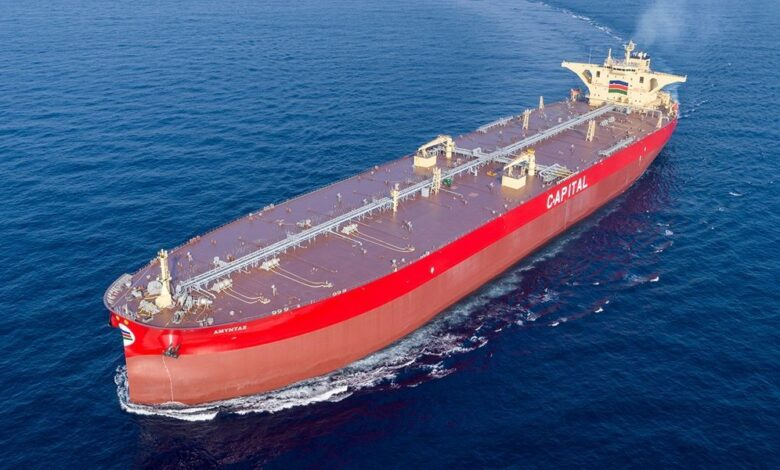Saudi Arabia’s biggest oil shipping company Bahri has invested heavily in acquiring a number of very large crude carriers (VLCCs) from Greece’s Capital Maritime & Trading (Capital), owned by Greek shipping king Evangelos Marinakis, in a bid to accelerate fleet modernization.

According to Bahri’s filing on the Saudi Stock Exchange (Tadawul) on August 20, the company plans to acquire nine VLCCs from Capital at a cost of about $1 billion, with the transaction to be financed by bank borrowings and its own cash.The nine VLCCs, none of which are currently named and most of which were built by South Korean shipyards, all have a deadweight tonnage of approximately 311,500 tons, have an average age of 5.9 years. All VLCCs are equipped with scrubbers and are expected to be delivered to Bahri by the end of the first quarter of 2025.
Since the end of last year, Bahri has been working on updating its VLCC fleet and purchasing a number of modernized vessels on the second hand market.
In May, Bahri acquired four VLCCs from Korea Shipping, a subsidiary of the SM Group, for a total transaction price of more than $480 million. The four VLCCs are the 308,000 dwt SM White Whale 1 and SM White Whale 2 and the 297,700 dwt SM Venus 1 and SM Venus 2, respectively, and all built by Hanwha Marine (formerly Daewoo Shipbuilding & Marine Engineering) for delivery in 2019 and 2020.
Bahri currently has a fleet of 40 VLCCs and the latest deal is expected to modernize the company’s oil transport fleet and phase out older vessels.“The transaction will significantly advance Bahri’s fleet modernisation plans, reinforcing its position among leading VLCC owners globally,” the company said, adding that it would also bolster Bahri’s overall fleet competitiveness and lead to higher earnings and reduced operating expenses.
In addition, Capital has ordered 4+2 liquefied natural gas (LNG) dual-fuel VLCCs from Dalian Shipbuilding Industry Corporation(DSIC), a subsidiary of China State Shipbuilding Corporation (CSSC). Two option vessels are in force and contracted for shipbuilding during the Posidonia Athens 2024 at a cost of $140 million per vessel, with deliveries expected to take place in 2026 and 2027.


